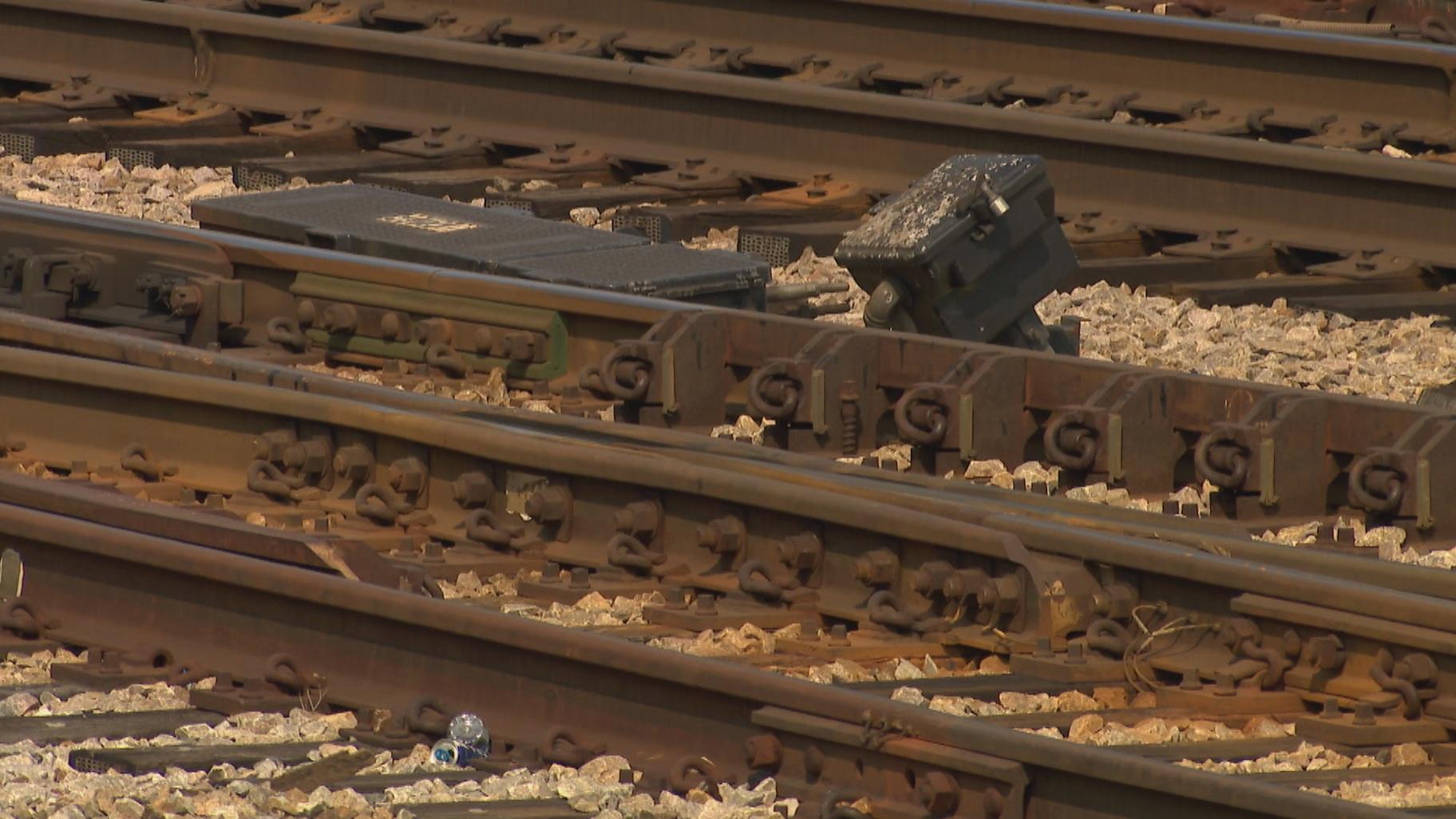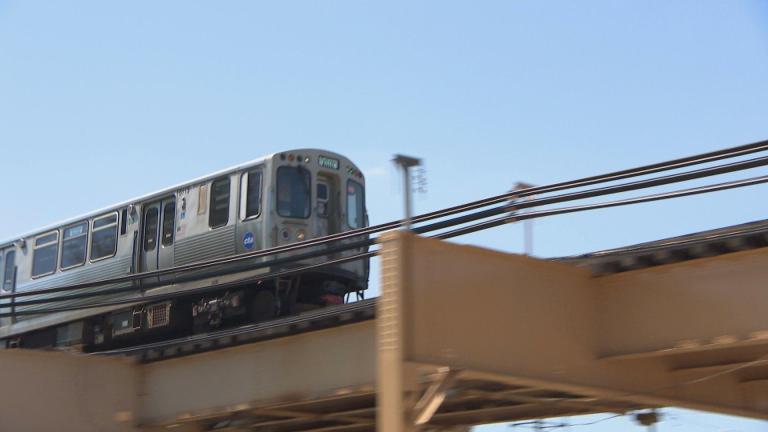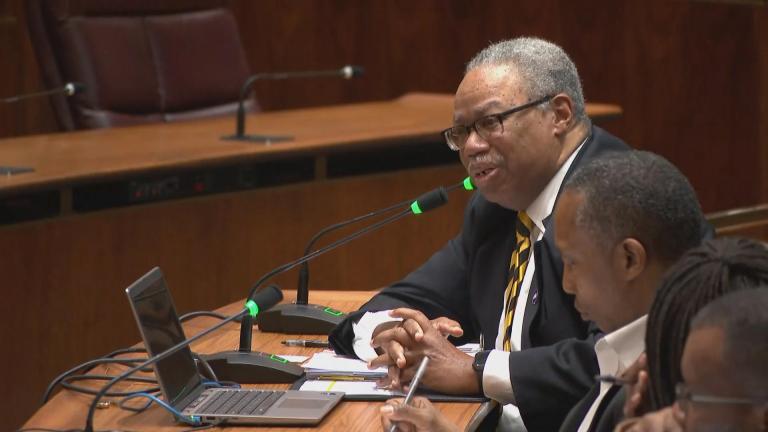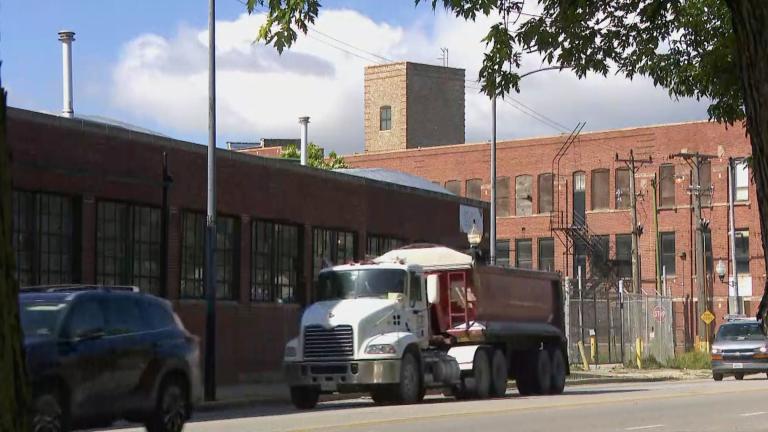 (WTTW News)
(WTTW News)
Soy, automobiles and Modelo beer can once again be shipped across the Mexico-U.S. border, now that rail operations in Texas are resuming after a temporary pause Illinois manufacturers say caused them, farmers and consumers harm during the holidays — one of the busiest times for freight.
U.S. Customs and Border Protection announced Friday that it was reversing course and reopening lines as of 1 p.m.
On Sunday, the agency suspended international rail traffic at crossings in Eagle Pass and El Paso, Texas, “in order to redirect personnel to assist the U.S. Border Patrol with taking migrants into custody” as the agency strains to keep up with a surge of migrants at the United States’ southwestern border.
Illinois Manufacturers’ Association (IMA) President Mark Denzler said the five-day stoppage was enough to cause a billion-dollar hit to the economy, an impact that struck the state’s agricultural and manufacture bases.
The pair of Texas border crossings represent 45% of cross-border rail traffic for the Union Pacific and BNSF railroads, both of which haul freight to and from Chicago.
“That amounts to more than 10,000 rail cars that were idled, sitting on either the Mexican side of the border or the U.S.,” Denzler said.
He said the impact on Illinois was “huge” given that the Joliet area hosts the nation’s largest intermodal facility; another big intermodal facility is in Decatur.
“When you have these 10,000 rail cars that are idled, some of those were going to come to Illinois,” Denzler said. “You had truck drivers scheduled to have been there Monday to pick up a load. It rippled down — from the railroads to the truck drivers to ultimately the consumers who don’t see a product at their stores right before the holidays.”
Denzler said he’s hopeful U.S. customs officials have “learned their lesson,” although the agency did not give “any assurances they’re not going to do this again.”
The IMA led an effort to protest the agency’s move, coordinating with other Illinois business associations and commerce groups from states like California, Idaho, New Mexico, Indiana and Iowa to write a letter beseeching the agency reopen the railways.
“There is no doubt that the federal government needs a solution to the migrant immigration issue which is a complex humanitarian crisis,” the letter reads. “However, shutting down key entry points for commerce with our nation’s largest trading partner is not the answer.”
Customs and Border Protection said in a statement Friday that it was using “all available resources” to “meet the challenge we are currently seeing across the southwest border.”
That included actions like shifting personnel, and other “operational adjustments” like suspending vehicle processing at an Eagle Pass international bridge and a port of entry in Arizona.
The statement did not elaborate on why the agency was swiftly changing course on the rail bridges, just that it was happening.
“CBP will continue to prioritize our border security mission as necessary in response to this evolving situation,” the statement read. “Beginning December 22, 2023 at 2:00 pm Eastern, CBP’s Office of Field Operations will resume operations at the international railway crossing bridges in Eagle Pass and El Paso, Texas.”
Denzler said the short-term break in rail activity will nonetheless briefly cause ripples in Illinois, as supply networks have to address the backup.
“Railroads had to stop accepting new shipments,” Denzler said. “We’re right before the holidays, and products ended up just sitting on either side of the border just waiting on resolution. When you shut it down for five days, you need to get those trains moving again, you have to coordinate logistics. You can only have so many trains on the tracks at a time and so many truck drivers.”
The IMA is among Illinois business organizations that called on the government to make it easier for migrants to work in the U.S. by expediting the process for granting work permits.
The White House is now working to speed up the process from taking a year, down to four months.
“Our nation was founded on immigration,” Denzler said. “We have workforce challenges here, and we need to make sure that the folks who have come into the country legally have the ability to work. They may not need housing or food if they have a job.”
Illinois manufacturers, hotels and restaurants, Denzler said, have job openings.
Lowering the $410 fee to apply for a work permit remains a challenge, he said.
Follow Amanda Vinicky on Twitter: @AmandaVinicky








